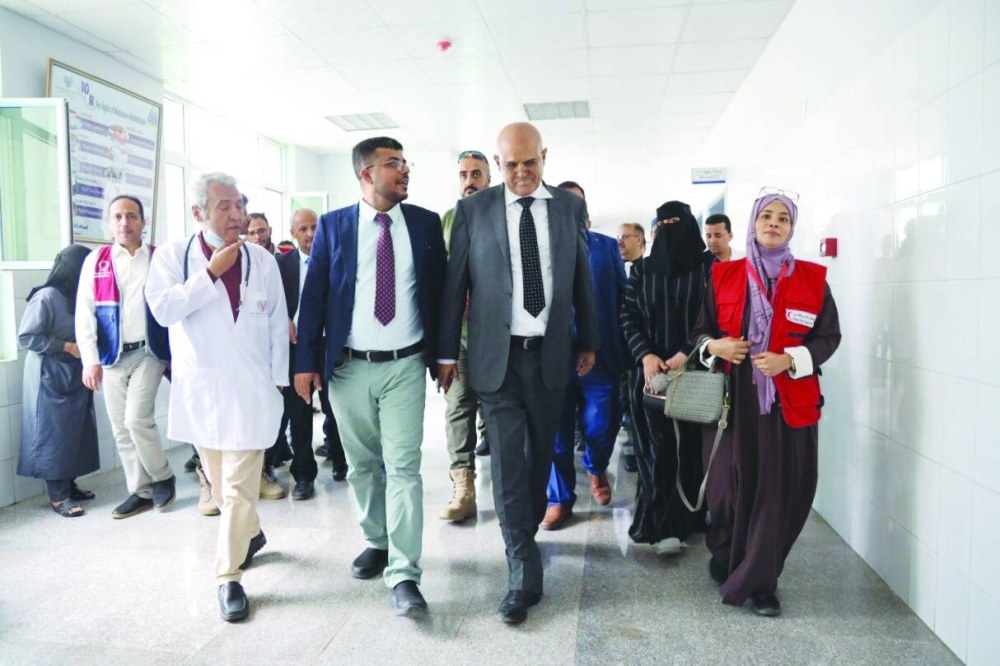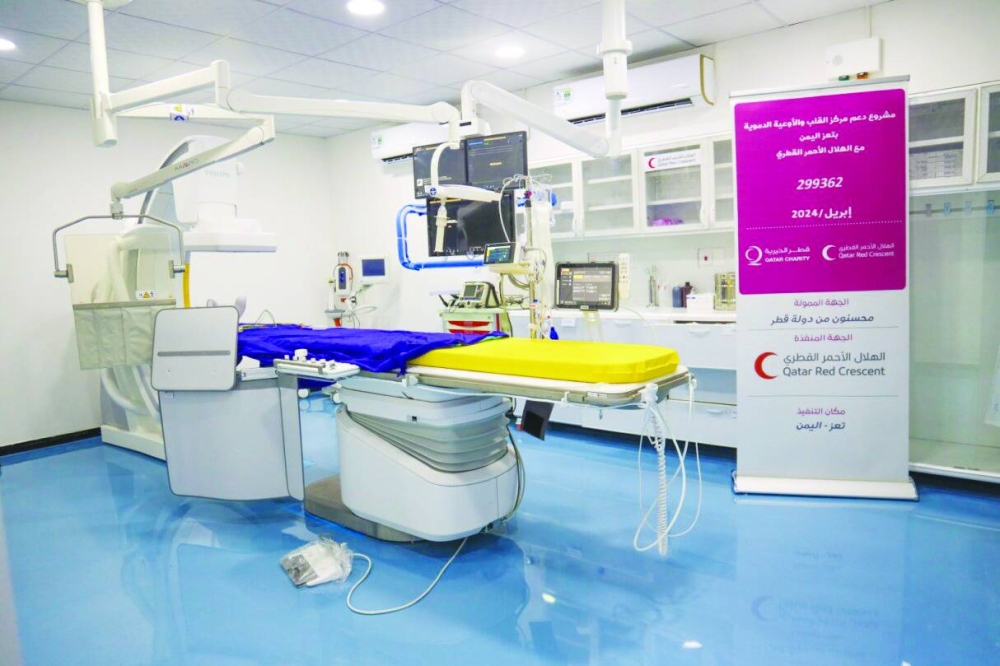The Qatar Red Crescent Society (QRCS), in partnership with Qatar Charity (QC), launched work on the "Azurion 3 F15" cardiac catheterisation device, in preparation for the opening of the cardiac catheterisation department at the Cardiovascular Centre in Taiz, Yemen.
This device is one of the most advanced and modern devices used in the accurate diagnosis and safe treatment of cardiovascular diseases.
It is characterised by a high-definition, three-dimensional imaging system, which supports integration with artificial intelligence (AI) techniques to improve image analysis and speed up the diagnosis process.
It also enhances the quality of healthcare at the centre and provides advanced and comprehensive medical services to patients.
This initiative aims to improve the quality of medical services provided to cardiovascular patients in Yemen, at a total cost estimated at $1,141,289 (QR4,160,000), funded by the people in Qatar.
Marking the occasion, Yemen’s Minister of Public Health and Population Dr Qasim Bahibah said that the Cardiovascular Centre in Taiz has had many accomplishments in a short period of time and is the only one that performs heart surgeries.
He voiced the hope that it would be replicated in other governorates.
In this regard, Dr Bahibah appreciated the efforts of the centre's staff and partners from regional organisations.
The director-general of the Cardiovascular Centre in Taiz, Abudar Alganadi, expressed his happiness with the project and the support provided to it.
He said that the Heart Centre in Taiz and all of Yemen owe their thanks to Qatar, represented by the QRCS and QC.
QC director of programmes Abdullah al-Nuaim said that the launch of the aforementioned device would alleviate the suffering of a large segment of Yemeni heart patients, and voiced the hope that this project would be the seed for future projects specialised in open-heart surgeries and kidney transplantation.
The support for this project is not limited to providing the centre with a cardiac catheterisation device, but includes providing medicines and medical supplies, in addition to performing 404 free surgical operations and therapeutic catheterisations for patients in need, with a focus on the weak, displaced, low-income groups, and people with special needs.


